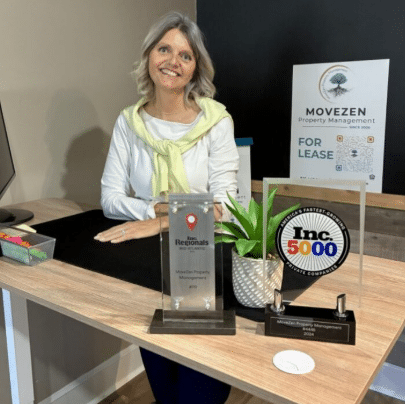Let me tell you something I’ve learned after years in this business: real estate investing isn’t just good. It’s really, really good. And I’m not talking about some get-rich-quick scheme or the latest investment fad. I’m talking about solid, long-term wealth building that’s stood the test of time.
Get a Free Virtual Rental Evaluation Plus a Custom Cost Quote
You’ve probably heard your financial advisor talk about diversifying your portfolio with stocks and bonds. That’s fine advice. But here’s what they might not be telling you: real estate has been quietly outperforming traditional investments for over a century. And the gap is bigger than most people realize.
The Numbers Don’t Lie
There’s this massive study called “The Rate of Return on Everything, 1870-2015” (yes, someone actually analyzed 145 years of investment data). What they found was pretty eye-opening.
Residential real estate delivered better returns than stocks, with about half the wild price swings. We’re talking over 8% returns annually after inflation. Higher returns. Lower stress. That’s the kind of combination that makes investors very happy.
And this wasn’t just some fluke from the old days. Even looking at the modern era since World War II, real estate kept pace with or beat stocks, while consistently crushing bonds.
Here’s something else interesting: when stock markets around the world start moving in sync and everything drops together (remember 2008?), real estate in different areas doesn’t necessarily follow along. Your rental property in Phoenix isn’t tied to what’s happening with condos in Tokyo the same way global stock markets are all connected.
The Secret Weapon: Leverage That Actually Works
Now here’s where real estate gets really interesting. You can’t walk into a bank and borrow money to buy stocks without taking on serious risk. Try it, and you might end up with a margin call that wipes you out.
But with real estate? Banks are happy to lend you money for a property. And that borrowed money can dramatically boost your returns in a much safer way.
Let’s say you find a property that returns 8% annually. You put down 25% and finance the rest at 6%. Your actual return on the money YOU put in? Around 14%. And unlike stock market leverage, you’ve got rental income coming in every month to cover that mortgage payment.
Plus, if something goes really wrong, the bank can only take the property, not your other assets. Compare that to margin investing in stocks, where your losses can spiral beyond what you initially put in. We’ve seen major hedge funds blow up because of this kind of leverage gone wrong.
The Tax Advantages Are Insane (In a Good Way)
Okay, here’s where real estate really separates itself from the pack.
Every year, you get to deduct depreciation from your rental income. You’re essentially reporting less taxable income without spending an extra dollar. Meanwhile, if you’re collecting stock dividends, you’re paying taxes on every penny.
But the real magic happens when you sell.
The 1031 Exchange: Your New Best Friend
Ever heard of a 1031 exchange? If you own rental property, you need to know about this.
Here’s how it works: when you sell a rental property, instead of paying capital gains taxes, you can roll that money into another property and defer those taxes. Indefinitely. Some investors call it “swap till you drop.”
Think about it. You bought a property for $200,000. Ten years later, it’s worth $400,000. Normally, you’d owe $40,000 in capital gains taxes. With a 1031 exchange, you take that full $400,000 and buy a bigger, better property.
Do this every seven to ten years throughout your investing career, and you can build about 40% more wealth than someone paying taxes each time they sell. That’s not a small difference. That’s generational wealth.
And here’s the kicker: when you eventually pass away, your heirs inherit the property at current market value, and all those deferred taxes just disappear. Forever.

Opportunity Zones: A Newer Tool
In 2017, the government created something called Qualified Opportunity Zones in economically struggling areas. The idea was to encourage investment in these communities.
If you invest in one of these zones and hold the property for ten years, any appreciation is completely tax-free. Not deferred. Free.
You can even use capital gains from selling stocks or other assets to invest in these zones, deferring those taxes while the real estate appreciates tax-free. It’s a powerful combination for the right investor.
Real Estate Is Just… Steadier
Stocks can drop 20-30% in a year and then bounce back just as quickly. It’s a roller coaster. Real estate doesn’t work that way.
Property values move more slowly and steadily. If you’re getting closer to retirement and can’t afford to see your portfolio cut in half right when you need the money, that stability matters a lot.
Plus, you’re getting rental income every month. The property is (hopefully) appreciating. Your tenants are paying down your mortgage for you. And you’re getting those tax benefits. That’s four different ways your investment is working for you.
Oh, and unlike bonds that get crushed when inflation goes up, your rental income and property value typically rise right along with inflation. Your investment maintains its purchasing power.
Getting Started the Smart Way
If you’re thinking about adding real estate to your investment strategy (or making it your primary strategy), start with rental properties in stable markets. Look for places with good job growth, population growth, and strong rental demand.
Focus on properties that generate positive cash flow from day one. Don’t count on appreciation alone to make the numbers work.
For investors who want to get into higher-quality commercial properties without managing them directly, Delaware Statutory Trusts (DSTs) can be a great option. You’re basically buying a fractional share of a Class A office building or apartment complex that’s professionally managed. And yes, these qualify for 1031 exchanges too.
Read Our North Carolina Rental Owner / Investor Frequently Asked Questions (FAQ)
Read Our South Carolina Rental Owner / Investor Frequently Asked Questions (FAQ)
The Bottom Line
Look, I’m not going to tell you to sell all your stocks and put everything into real estate. That’s not my style, and it wouldn’t be responsible advice anyway.
But the data is pretty clear: real estate has historically delivered better risk-adjusted returns than traditional investments. When you add in the leverage opportunities and tax advantages—especially 1031 exchanges—the gap gets even wider.
The fundamentals that make real estate work haven’t changed. There’s limited land, a growing population, steady demand for housing, available financing, and a tax code that favors property investors.
If you’re serious about building long-term wealth, real estate deserves a serious look, not as a side bet, but as a core part of your strategy.
And if you already own rental properties? Make sure you’re maximizing those tax advantages. A good property manager and a sharp tax advisor can help you make the most of what you’ve got.
To read more, visit A Compelling Case for Why Property Investing Reigns Supreme | Kiplinger









